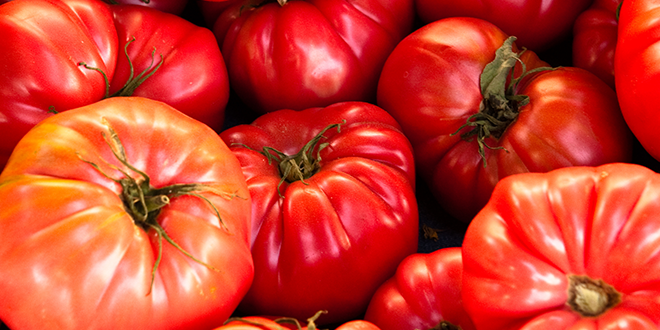Sep 20, 2019Mexico-US tomato agreement welcomed by both sides
Grower groups on both sides of the border welcomed a new agreement suspending an investigation of Mexican-grown fresh tomato imports to the U.S. market.
On Sept. 19 U.S. Department of Commerce finalized an agreement with Mexican tomato growers to suspend the investigation and halt the process for imposing anti-dumping duties on tomatoes from Mexico.
Some U.S. growers previously alleged that Mexican-grown fresh tomatoes were being dumped in the U.S. market at unfairly cheap prices. Interests representing Mexican growers have contested the complaints and dismissed them as political rhetoric surrounding trade negotiations.


The new agreement “protects U.S. tomato producers from unfair trade” and “also removes major uncertainties for the Mexican growers and their workers,” Secretary of Commerce Wilbur Ross said in a statement. Tomato growers across America, including Florida, Texas and Arizona, benefit from the decision, the Commerce Department said.
The Florida Tomato Exchange (FTE) – one of the U.S. groups to complain of dumping – said in an emailed statement it welcomed the new agreement as a step in the right direction.
“The new suspension agreement includes strong monitoring, enforcement and anti-circumvention provisions, including border inspections, that should help eliminate the injury to American tomato farmers caused by dumped Mexican tomatoes,” FTE said. “The border inspections will only cover about 66% of imported Mexican tomatoes, but this provision should discourage dumping of low quality and defective tomatoes, which have been depressing prices and injuring U.S. tomato producers for years.”
Mexican tomato growers also welcomed the decision.
“The agreement was hard-fought, but we were able to secure a number of important provisions that will make this deal work for our distributors and customers,” said Mario Robles, director of the Sinaloa growers association.
Mexican tomato growers said in a joint statement that an important part of the new agreement is “the commitment that inspections will be conducted by the U.S. Department of Agriculture in accordance with its normal practice, including being done in a timely manner and completed within 24 hours.”
The United Fresh Produce Association – which includes companies across every segment of the fresh produce supply chain – was grateful for a resolution.
“The agreement now ensures that consumers of tomatoes will not be negatively impacted,” said Robert Guenther, United Fresh’s senior vice president of public policy.
The new agreement allows the Commerce Department to audit up to 80 Mexican tomato producers and U.S. sellers per quarter, or more with good cause, according to the Commerce Department. The agreement also closes loopholes from past suspension agreements that permitted sales below the reference prices in certain circumstances. Another provision will discourage importation of low quality and defective tomatoes.
“This agreement, like any trade agreement, will only work if it is enforced,” FTE said. “The FTE looks forward to working with the Commerce Department and the USDA to ensure that the agreement is enforced vigorously and to identify and stop all efforts to circumvent or undermine its provisions, especially the border inspection system.”
– Stephen Kloosterman, associate editor















